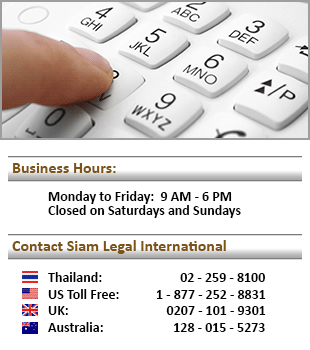Child adoption in Thailand is a well-regulated legal process governed by the Child Adoption Act B.E. 2522 (1979). Overseen by the Department of Children and Youth (DCY) under the Ministry of Social Development and Human Security, the system ensures the welfare of children and adheres to strict protocols for both domestic and international adoptions.
1. Types of Adoption in Thailand
There are two main types of adoption in Thailand: domestic adoption (for Thai nationals and foreigners residing in Thailand) and international adoption (for foreigners living outside Thailand). Each has its own legal framework and set of requirements.
a) Domestic Adoption
This type applies to both Thai nationals and foreigners who are legally residing in Thailand. The applicant must meet specific criteria, such as age requirements and financial stability. Thai nationals face fewer restrictions, while foreigners must provide more documentation, including residency proof and work permits. Domestic adoption is processed entirely within Thailand’s legal system.
b) International Adoption
For foreigners living outside Thailand, international adoption is a more complex process. It involves cooperation between the Department of Children and Youth and adoption agencies in the applicant’s home country. Thailand is a signatory to the Hague Adoption Convention, which ensures ethical adoption practices and prevents child trafficking.
2. Eligibility for Adoption
Different eligibility criteria apply depending on whether the applicant is a Thai national or a foreigner.
a) Eligibility for Thai Nationals
- Age Requirement: Applicants must be at least 25 years old.
- They must be at least 15 years older than the child being adopted.
- Proof of financial stability is required, including income documentation and a background check.
b) Eligibility for Foreigners
Foreign applicants must:
- Hold a Non-Immigrant Visa for at least one year prior to applying.
- Be married for at least three years if applying as a couple.
- Provide a home study report from their home country, which assesses their suitability to adopt based on living conditions, financial status, and criminal background.
3. The Adoption Process in Thailand
The process of adopting a child in Thailand is thorough and can take between 18 months to 3 years, depending on the complexity of the case and the background of the child being adopted.
a) Application Submission
Applicants must submit the following documents:
- Personal identification (e.g., passport, ID cards).
- Marriage certificate (if applicable).
- Proof of financial status (income and savings records).
- A home study for foreign applicants.
b) Child Matching
After the application is approved, the Department of Children and Youth (DCY) works to match the child with the prospective adoptive parents. The matching process is guided by the child’s best interests, considering the applicants’ ability to provide emotional, financial, and social stability.
c) Probationary Period
Once a match is made, the child enters a six-month probationary period with the prospective adoptive family. During this time, social workers will monitor and assess the relationship between the child and the adoptive family to ensure a good fit.
d) Court Hearing and Finalization
After the probationary period, the final step involves a court hearing. If the court finds the adoption is in the best interest of the child, a final adoption order is granted, legally recognizing the applicants as the child’s parents.
4. Legal and Cultural Considerations
a) Hague Convention
International adoptions in Thailand must comply with the Hague Convention on Intercountry Adoption, ensuring ethical practices are followed, including preventing child trafficking and ensuring that the child’s welfare is the primary consideration.
b) Thai Cultural Values
Cultural values in Thailand, including the importance of family, respect for elders, and social norms, play a significant role in adoption. Prospective parents, especially foreigners, must demonstrate cultural sensitivity and an understanding of Thai traditions to ensure smooth integration for the adopted child.
c) Dual Citizenship and Name Changes
Adopted children in Thailand may retain their original names or take the family name of the adoptive parents, depending on the parents’ preferences. Additionally, adoption does not automatically grant the child foreign citizenship. Foreign parents must complete a separate process to secure citizenship for the child in their home country.
5. Challenges in the Adoption Process
a) Length of Process
Adoption in Thailand can be time-consuming due to the rigorous verification and evaluation processes. Delays may arise from bureaucratic requirements, particularly in international adoptions, where both Thai and foreign agencies are involved.
b) Financial and Emotional Costs
The adoption process involves various financial costs, including legal fees, agency fees, and travel expenses for international adopters. In addition, emotional challenges can arise, particularly when adopting older children or children with special needs who may require psychological support during the adjustment period.
Conclusion
Child adoption in Thailand is a structured and carefully monitored process that prioritizes the child’s best interests. With the proper documentation and commitment, both Thai nationals and foreign nationals can provide a loving and stable home for children in need. While the process may be lengthy and complex, successful adoption results in a legally recognized family bond, giving children the opportunity for a brighter future.


